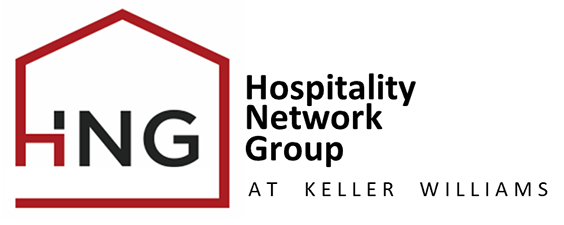Ever Heard of a Rolling Recession? Just One of Many Points Gary Keller Made at a Recent Keller Williams Real Estate Conference
The Hospitality Network Group was recently on hand for the annual conference of top Keller Williams agents, Mega Agent Camp. One of the highlights of attending this conference is the opportunity to hear from our company and industry thought leaders on the current and future state of real estate.

We find ourselves in confusing times in the real estate industry. Keller Williams Executive Chairman Gary Keller, Head of Industry and Learning Jason Abrams, VP of Strategic Content Jay Papasan and KW Chief Economist Ruben Gonzalez helped to make sense of recent mixed messages.
There are plenty of tailwinds in today’s market — home appreciation has strengthened, employment has slid toward historical lows, millennials are nearing prime earning years, and mortgage rate volatility is calming. However, the group acknowledged that inflation is generally preventing us from fully focusing on positive aspects of the current landscape
According to Gonzalez, inflation and interest rate trends have slowed the GDP. 2023 is projected to end with a GDP of 1 percent, resulting in a mild recession at the beginning of 2024.
Consumer spending is a primary economic driver. With higher interest rates, there is always a risk that consumer spending will drop further than the Fed thinks, Gonzalez continued. This would result in an even bigger recession.
If projections are correct, according to Keller and Gonzalez, we will see a “rolling recession” in 2024. This means that specific sectors of the market suffer and others continue as normal.

“Right now, real estate is the sector that’s having a recession. Any industry right now that is driven by the cost of money is having a recession, but cell phones are not having a recession right now. There are a lot of products or services that are not in recession right now, but banking could be the next one that experiences are recession.”
“The Fed has been fighting for that soft landing,” Papasan said. “I think they would call a rolling recession where the whole economy is healthy but parts of it aren’t. I think they would call that a win if they can get inflation down.”
Recent housing market challenges have eroded consumer sentiment, Keller said. A recent Fannie Mae survey revealed 80 percent of Americans believe now is not a good time to purchase a home. While recognizing the challenges both buyers and sellers face, Keller added that media reports on such things as home sales, home prices and other market indicators have pushed consumers into a “fool’s game” of attempting to time the market.
“Why would [consumers] think they can predict the economy? You should always be looking to buy the right piece of real estate,” Keller said. “You should never walk around and in your mind go, ‘It’s not a good time to buy.’ That makes no sense to me. If you study history, that is uninformed.”
To illustrate this point, Keller showed a chart tracking home prices from 1990 to 2023. In 2006, when median home prices reached $222,000, the price was 21 percent above the then-trend line.
In 2023, the projected median home price of $382,000 is just 7 percent above current trend lines.
The current price of real estate is also a source of confusion. Keller said, “What I think is fascinating again, people go, ‘Oh, it’s way overpriced.’ It may feel that way to you, but it’s not phenomenally overpriced.
Despite the existing climate, Keller shared reasons why the real estate industry is poised for success in the next decade. One of the major reasons is that as millennials reach their prime earning years, they will finally take their roles as the primary leaders of the housing market.
“We talked about the greatest wealth transfer in the history of the world because of the baby boomer generation. It hasn’t happened yet. It’s fixing to happen,” Papasan said. “Between now and the 2030s, millions and millions of businesses will be sold as [baby boomers] go into retirement.” Providing education to millennials about smart financial decisions is imperative.
In the end, Keller said while he is not able to predict the future, looking back historically shows that real estate is always a good investment.
"I can’t predict the future, but I can look backward and say ‘Thank God. I started buying real estate right out of college.'”













